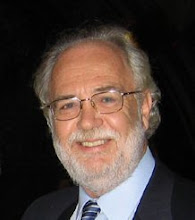The ICT4LT site and its associated blog have been mentioned as an example of good practice at the SAEL Project Website.
SAEL (Sites d'Accompagnement pour les Enseignants de Langues) is an EC-funded project that aims to facilitate the implementation of language policy recommendations with a view to improving the quality of language teaching in Europe. The project seeks to achieve this by promoting the creation of online support websites for language teachers to help keep them up-to-date with innovative approaches, resources and other information. See:
http://www.eurosael.eu/en/project/aims-5.html
One of the final outcomes of the SAEL Project is a Guide that contains practical suggestions for creating and updating websites designed to support the work of language teachers. The Guide sets out to provide practical answers to the following questions:
• What is a language teacher support website?
• How are these websites designed, run and improved?
• Who is involved in this process and what are the main stages?
• Why does a support website represent real added value for the teaching community?
The Guide includes recommendations, examples of websites and good practice for setting up, improving and running support websites that match the requirements of your country, region or institution. The Guide can be downloaded in PDF format. Click here: SAEL Guide
Monday, 25 January 2010
Saturday, 9 January 2010
Links to blogs on ICT and language teaching
There are two very active blogs that I would like to recommend. Both focus on teaching foreign languages in secondary education in the UK.
Joe Dale's blog, Integrating ICT into the Modern Foreign Languages Classroom:
http://joedale.typepad.com/
José Picardo's blog, Box of Tricks:
http://www.boxoftricks.net/
Joe works as an adviser for CILT, the National Centre for Foreign Languages, and José teaches in a secondary school in the UK. There are many other good blogs written by practising teachers. I have compiled a list of those that I look at regularly in Section 12.2, Module 1.5 at the ICT4LT site.
I would be interested in receiving feedback on what you find in any of these blogs, and if you know of a blog that you would like to recommend please let me know and I will add it to my list in ICT4LT Module 1.5.
Joe Dale's blog, Integrating ICT into the Modern Foreign Languages Classroom:
http://joedale.typepad.com/
José Picardo's blog, Box of Tricks:
http://www.boxoftricks.net/
Joe works as an adviser for CILT, the National Centre for Foreign Languages, and José teaches in a secondary school in the UK. There are many other good blogs written by practising teachers. I have compiled a list of those that I look at regularly in Section 12.2, Module 1.5 at the ICT4LT site.
I would be interested in receiving feedback on what you find in any of these blogs, and if you know of a blog that you would like to recommend please let me know and I will add it to my list in ICT4LT Module 1.5.
Teaching Languages in a Virtual World
A TESOL Electronic Village Online (EVO) Course: Ref. TLinVW10
11 January to 21 February 2010
Teaching Languages in a Virtual World is a hands-on collaborative teacher CPD workshop to explore the relationship between virtual worlds and language learning. The course targets mainly ESOL teachers, but a good deal of workshop is relevant to teachers of other languages.
For further information about the TESOL Electronic Village Online (EVO) see:
http://evosessions.pbworks.com
11 January to 21 February 2010
Teaching Languages in a Virtual World is a hands-on collaborative teacher CPD workshop to explore the relationship between virtual worlds and language learning. The course targets mainly ESOL teachers, but a good deal of workshop is relevant to teachers of other languages.
For further information about the TESOL Electronic Village Online (EVO) see:
http://evosessions.pbworks.com
Subscribe to:
Comments (Atom)




